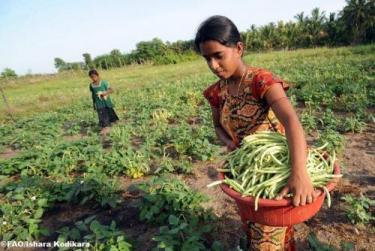Environment
Greenpeace applauds European Parliament call to protect the Arctic
European Parliament resolution calling on the European Commission, the EU’s External Action Services and EU governments to protect the fragile Arctic environment is an encouraging initiative, according to Greenpeace. The resolution, adopted by a cross party majority, backs the establishment of a conservation area in the waters around the North Pole and a moratorium on Arctic fisheries. Regarding oil drilling, the Parliament stressed the need for a binding agreement on pollution prevention in the Arctic Council.
- Read more
- 362 reads
Cooling without climate warming: Parliament backs F-gas ban
The use of climate-unfriendly fluorinated gases should be banned in new air-conditioning appliances and refrigerators by 2022-2025, under draft rules approved by the European Parliament on Wednesday. These rules had already been informally agreed with EU ministers. Overall, the use of potent hydrofluorocarbon (HFC) greenhouse gases is to be reduced by 79% by 2030.
- Read more
- 412 reads
MEPs approve Copernicus, the EU’s new Earth Observation System
The House gave its green light to Copernicus, the EU’s new Earth Observation System, on Wednesday, endorsing a deal struck with the Council last December. Replacing the Global Monitoring for Environment and Security (GMES) programme, Copernicus has a budget of €4,291.48 million for 2014-2020. Its data will serve many purposes, including monitoring climate change and protecting public security.
- Read more
- 309 reads
EU Parliament joins rockstars and scientists calling for Arctic sanctuary around North Pole
The European Parliament passed a resolution calling for a protected area around the North Pole which could ban oil companies and industrial fishing fleets from the region. The text echoes the demands of an international campaign which has attracted the support of over five million people including Sir Paul McCartney and US oceanographer Sylvia Earle.
- Read more
- 327 reads
Environment MEPs clamp down on wasteful plastic carrier bags
EU states would have to reduce the consumption of most common and polluting plastic bags by 80% by 2019, under draft rules backed by the Environment Committee on Monday. To this end, MEPs recommend using economic instruments such as taxes and levies, marketing restrictions or bans. Plastic carrier bag litter is a major environmental concern, known to affect water bodies and aquatic eco-systems in particular.
- Read more
- 321 reads
Pacific island countries urged to produce more healthy, competitive foods - UN

Processed foods are increasingly pricing locally produced, healthier foods out of the market.
- Read more
- 327 reads
MEPs reject draft seed regulation
The European Commission's proposal for plant reproductive material law, also known as the “seed regulation”, was voted down by Parliament on Tuesday, amid concerns that it would give the Commission too much power and leave EU countries without any leeway to tailor the new rules to their needs.
- Read more
- 405 reads
Asia and the Pacific must boost food production to meet future demand

- Read more
- 405 reads
Mars commits to No Deforestation, exposes P&G for its inaction
Mars committed to remove deforestation from all of its products by the end of 2015, a move that places pressure on companies such as Procter & Gamble to set an equally ambitious No Deforestation Policy. In addition, Greenpeace activists documented ongoing forest clearance and unfurled a giant banner in a palm oil plantation in Indonesia which is owned by P&G supplier Musim Mas, and where orangutan habitat was recently cleared.
- Read more
- 330 reads
New Project to Help Approximately 79,000 people in rural communities in Solomon Islands to mitigate and manage the risks of natural hazards and climate change
The World Bank’s Board of Executive Directors approved a new project to help rural communities in Solomon Islands to mitigate and manage the risks of natural hazards and climate change.
- Read more
- 370 reads
Human Rights
Fostering a More Humane World: The 28th Eurasian Economic Summi

Conscience, Hope, and Action: Keys to Global Peace and Sustainability

Ringing FOWPAL’s Peace Bell for the World:Nobel Peace Prize Laureates’ Visions and Actions

Protecting the World’s Cultural Diversity for a Sustainable Future

Puppet Show I International Friendship Day 2020

